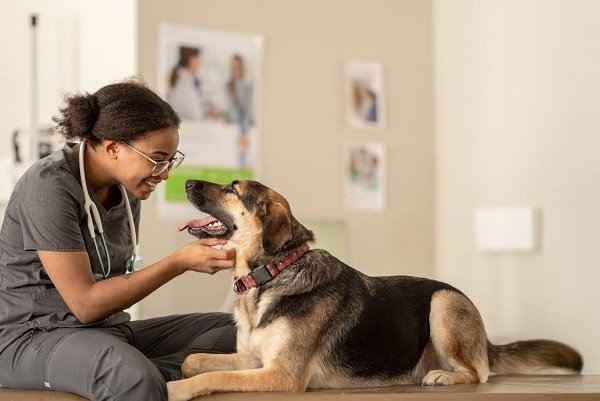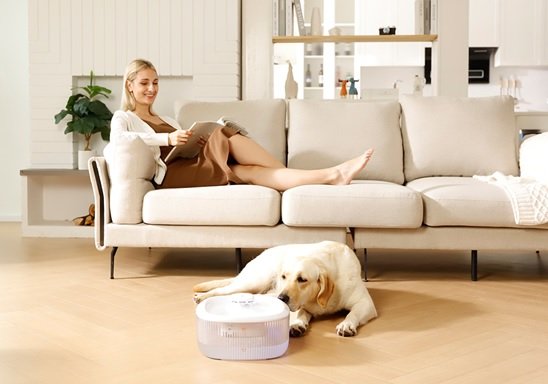The Pack Mentality: How to Manage a Multi-Dog Household

Bringing multiple dogs into your home can be a rewarding experience filled with joy, companionship, and love. However, managing a multi-dog household can also be challenging without proper planning and understanding of canine dynamics.
To ensure a harmonious and happy environment for your furry companions and yourself, it’s essential to establish a balanced routine, set clear rules, and foster a positive atmosphere. This article will explore essential tips for successfully managing a multi-dog household.
16 Tips for Managing a Multi-Dog Household
- Choose Complementary Personalities
When adding a new dog to your pack, consider their personalities and how they might interact with your existing dogs. Dogs with compatible temperaments are more likely to get along well. For instance, an energetic and playful dog may complement a laid-back and calm one, resulting in a balanced dynamic. Consult with a professional or a rescue organization to help you find the right match for your current canine family.
- Gradual Introductions
Introducing a new dog to your existing pack should be a gradual process. Start with controlled, neutral territory, such as a park or a friend’s yard, where the dogs can meet on a leash. Observe their body language and ensure that the initial interactions are positive. Gradually increase the amount of time they spend together and supervise their interactions until you are confident they can coexist peacefully.
- Establish Clear Hierarchy
Dogs thrive in an environment with clear rules and a defined social hierarchy. As the owner, you should establish yourself as the pack leader. Be consistent with rules, commands, and routines. Ensure that each dog understands their place within the hierarchy. This can reduce conflicts and create a sense of stability for your dogs.
- Separate Feeding and Personal Space
Feeding time can be a potential source of conflict among dogs. To avoid food-related aggression, feed your dogs in separate areas or in their individual crates. Providing each dog with a designated space to retreat for some alone time is also crucial. This can be a crate, a separate room, or a comfy corner with their bed and toys.
- Supervise Playtime
Dogs love to play, but rough play can escalate into real fights, especially in a multi-dog household. Supervise playtime and intervene if you notice any signs of tension or aggression. Keep play sessions short and positive, and make sure all dogs have an opportunity to engage in activities they enjoy.
- Exercise and Mental Stimulation
A tired dog is a happy dog, and this holds true for a multi-dog household. Ensure each dog gets plenty of exercise and mental stimulation to prevent boredom and reduce the likelihood of destructive behavior. Daily walks, playtime, and puzzle toys can help keep your dogs engaged and content.
- Individual Attention
While managing multiple dogs, spending quality one-on-one time with each of them is essential. This helps strengthen the bond between you and your dogs and allows you to address their individual needs and concerns. Even a few minutes of focused attention daily can make a significant difference.
- Training and Socialization
Consistent training is crucial in a multi-dog household. Each dog should be well-trained in basic commands, and their socialization with other dogs and people should be ongoing. Training classes and professional guidance can be invaluable in ensuring that all dogs are well-behaved and responsive to commands.
- Seek Professional Help
If you encounter persistent behavioral issues or conflicts among your dogs that you can’t resolve on your own, don’t hesitate to seek the assistance of a professional dog trainer or behaviorist. They can provide customized guidance and strategies to address specific problems.
- Be Mindful of Resources
In a multi-dog household, resources like food, toys, and attention can become sources of tension. To prevent conflicts, ensure that resources are distributed equitably. When offering treats or toys, ensure each dog has their share, and monitor them to prevent resource guarding. Additionally, feed your dogs separately to avoid food-related issues.
- Regular Health Checkups
Regular veterinary checkups are essential to ensure the well-being of all your dogs. Keep up with vaccinations, flea and tick prevention, and dental care. Address any health issues promptly to prevent them from escalating into conflicts or causing stress among your dogs.
- Create a Safe Environment
Safety is paramount in a multi-dog household. Be mindful of potential hazards like toxic plants, chemicals, and small objects that dogs could ingest. Ensure your yard is securely fenced to prevent escapes, and use baby gates or barriers to separate dogs when needed. A safe environment contributes to your canine companions’ sense of security and calmness.
- Intervene Early
Dogs communicate primarily through body language, so it’s essential to understand their cues. Learn to recognize signs of stress, fear, and aggression, such as growling, stiff body postures, and raised hackles. You can intervene early to prevent conflicts or discomfort by being attentive to their body language.
- Be Patient and Understanding
Managing a multi-dog household can be challenging, and your dogs may have occasional disagreements or rivalries. It’s crucial to remain patient and understanding. Dogs, like people, have their own personalities and quirks, and they may need time to adjust to their living situation. Positive reinforcement and a calm, assertive demeanor can go a long way in resolving conflicts and promoting harmony.
- Celebrate Individuality
While it’s important to foster a sense of unity among your dogs, it’s equally important to celebrate their individuality. Each dog is unique, with their own likes, dislikes, and preferences. Acknowledge and respect these differences, and cater to their specific needs and personalities. Doing so will help each dog feel valued and loved.
- Regular Playdates and Socialization
Give your dogs opportunities to socialize with other dogs outside your household. Regular playdates at a dog park or with friends’ dogs can help your dogs build positive social skills and reduce territorial behavior at home. Well-socialized dogs are generally more relaxed and less likely to react aggressively in unfamiliar situations.
Maintaining a Harmonious and Happy Home Environment
Managing a multi-dog household requires commitment, patience, and a deep understanding of canine behavior. With careful planning, training, and attention to each dog’s needs, you can create a harmonious and happy environment where your furry companions can thrive. Remember that every dog is an individual, and fostering a sense of unity and love in your home will ultimately lead to a joyful and fulfilling experience for both you and your canine family.












